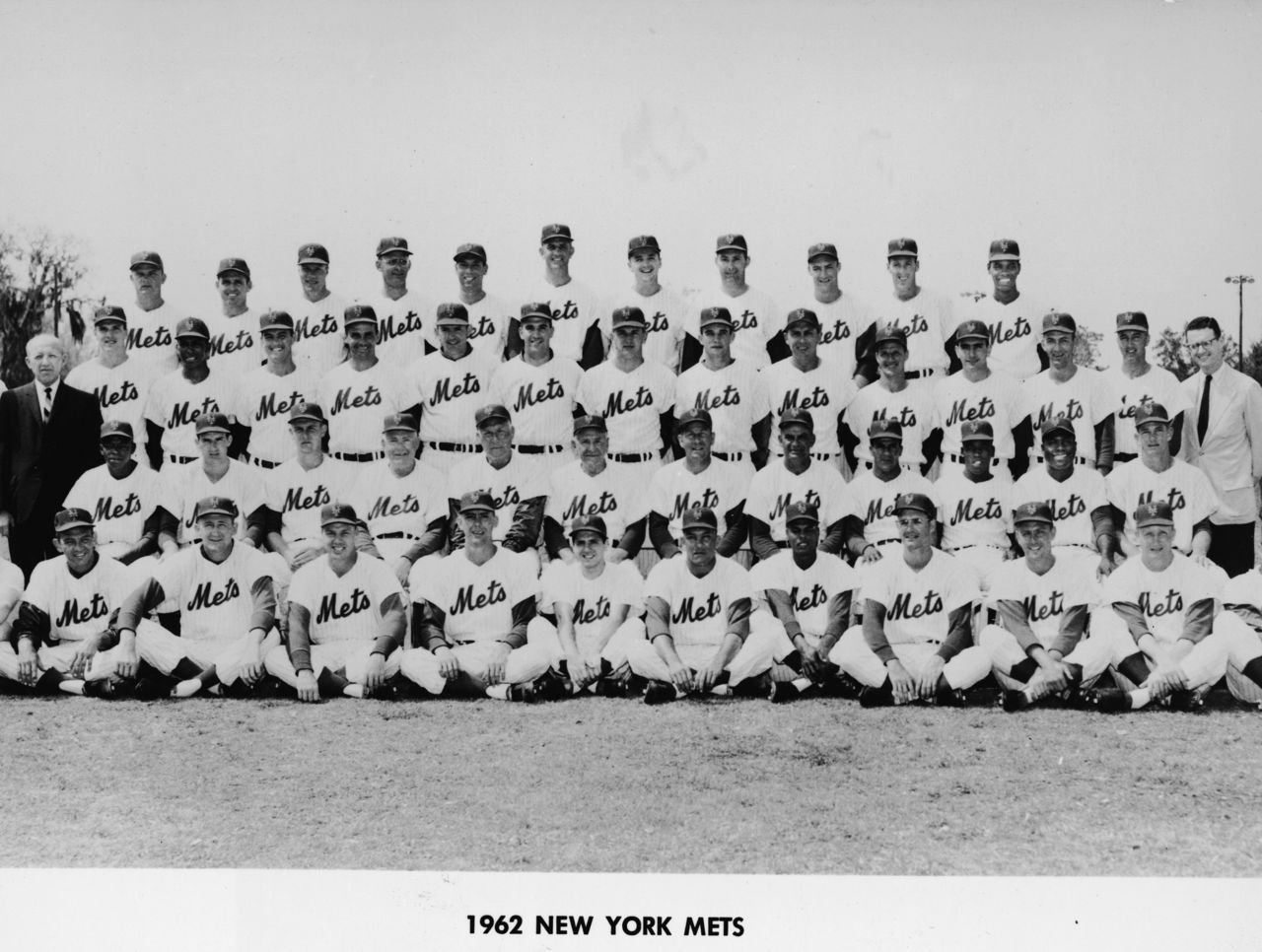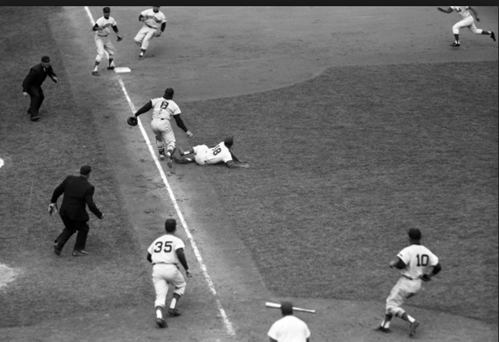The Infamous 1962 New York Mets: A Chronicle of Baseball’s Worst
The Infamous 1962 New York Mets: A Chronicle of Baseball’s Worst
Introduction
With great pleasure, we will explore the intriguing topic related to The Infamous 1962 New York Mets: A Chronicle of Baseball’s Worst. Let’s weave interesting information and offer fresh perspectives to the readers.
Table of Content

The Infamous 1962 New York Mets: A Chronicle of Baseball’s Worst
The 1962 New York Mets hold a unique place in baseball history, not for their triumphs, but for their unparalleled struggles. Their 40-120 record, a .250 winning percentage, stands as the worst single-season performance in Major League Baseball history. This dismal mark was a testament to a team in its infancy, struggling to find its footing in a league dominated by seasoned veterans.
The Mets, born in 1962, were an expansion team, entering a league where established franchises boasted decades of history and talent. Their inaugural season was a whirlwind of inexperience and misfortune. The team was riddled with players who were either past their prime or simply not ready for the major league level.
The Mets’ pitching staff, in particular, was a source of consistent woes. Their team ERA of 4.93 was the worst in the league, and their 1,044 runs allowed were a league-high. The pitching struggles were compounded by a lackluster offense, which scored a paltry 616 runs, the second-lowest in the league.
The Mets’ struggles were not merely confined to the field. The team’s on-field performance was a reflection of the organization’s early struggles to find its identity. The team’s management was inexperienced, and the franchise was still struggling to establish a fan base.
Despite the team’s dismal record, there were some bright spots. One of the most notable was the emergence of young outfielder Richie Ashburn, a future Hall of Famer, who provided a spark of hope amidst the gloom. Ashburn, playing in his final season, hit .306 with a .384 on-base percentage, proving he could still compete at the highest level.
However, even Ashburn’s brilliance could not salvage the team’s fortunes. The Mets finished the season 60.5 games behind the first-place San Francisco Giants, a testament to the chasm between their performance and the rest of the league.
While the 1962 season was a painful chapter in the Mets’ history, it ultimately served as a catalyst for growth. The team’s struggles forced management to re-evaluate their approach and invest in building a competitive roster. This process culminated in the Mets’ improbable rise to prominence in the 1960s, culminating in their first World Series victory in 1969.
The 1962 Mets serve as a poignant reminder of the challenges faced by expansion teams in a league dominated by established franchises. Their struggles highlight the importance of building a strong foundation, both on and off the field, for long-term success.
FAQs on the 1962 New York Mets:
Q: What was the Mets’ record in 1962?
A: The 1962 New York Mets finished the season with a record of 40-120, a .250 winning percentage.
Q: What factors contributed to the Mets’ struggles in 1962?
A: The Mets’ struggles were a result of a combination of factors, including a lack of experienced players, a weak pitching staff, and a lackluster offense.
Q: Did the Mets have any notable players in 1962?
A: While the Mets had a mostly unheralded roster, Hall of Famer Richie Ashburn provided a spark of brilliance in his final season, hitting .306 with a .384 on-base percentage.
Q: Did the Mets’ 1962 season have any lasting impact?
A: While the 1962 season was a painful chapter in Mets history, it served as a catalyst for growth. The team’s struggles forced management to re-evaluate their approach and invest in building a competitive roster, eventually culminating in the team’s rise to prominence in the 1960s.
Tips for Avoiding a 1962 Mets-like Season:
- Invest in building a strong foundation: Expansion teams need to prioritize building a strong foundation, both on and off the field. This includes scouting and drafting talent, developing a strong coaching staff, and fostering a positive team culture.
- Patience and perseverance: Success in baseball takes time. Expansion teams should be patient and persistent in their efforts to build a competitive team. Avoid quick fixes and focus on long-term development.
- Embrace the challenges: Expansion teams will face challenges, both on and off the field. Embrace these challenges as opportunities for growth and learning.
- Develop a strong fan base: Building a loyal fan base is crucial for any team’s success. Expansion teams should prioritize engaging with the community and creating a positive fan experience.
Conclusion:
The 1962 New York Mets stand as a cautionary tale in baseball history. Their struggles highlight the challenges faced by expansion teams in a league dominated by established franchises. However, their story also offers a message of hope. By embracing the challenges and focusing on long-term development, expansion teams can overcome adversity and achieve success. The Mets’ improbable rise to prominence in the 1960s is a testament to the transformative power of perseverance and a commitment to building a strong foundation.








Closure
Thus, we hope this article has provided valuable insights into The Infamous 1962 New York Mets: A Chronicle of Baseball’s Worst. We appreciate your attention to our article. See you in our next article!